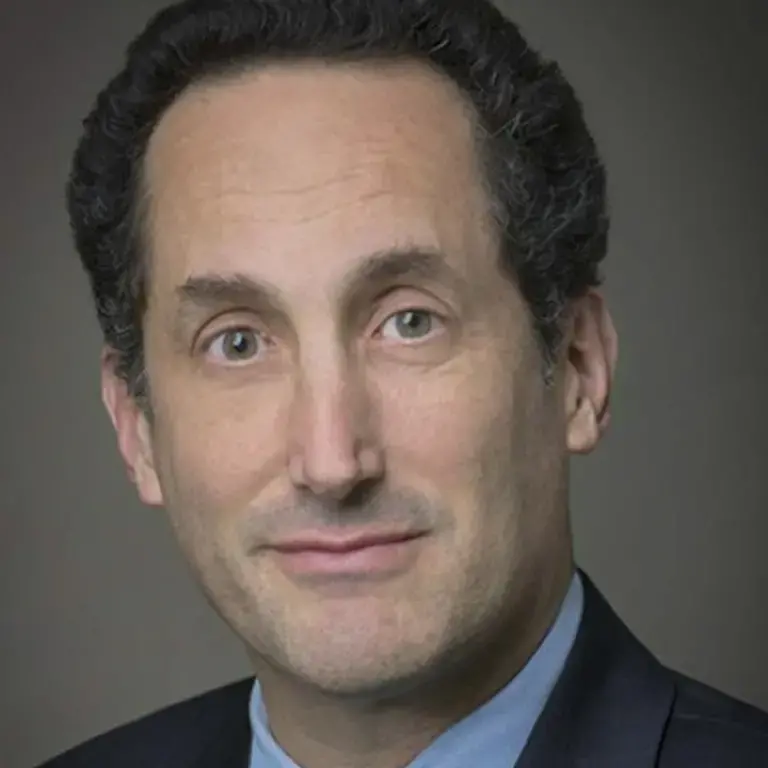David N. Hoffman, healthcare attorney, clinical ethicist, and Lecturer in the Discipline of Bioethics, was invited to testify before the New York State Legislature this past August. In his testimony, he explained his views on the state's COVID-19 response.
I was recently invited to testify at a joint hearing of six committees of the New York State Legislature on the inadequate response by long-term care (LTC) facilities to the coronavirus pandemic. How does one receive such an invitation happen? Well it helps if you have spent your entire career in a narrow area of professional practice, and then wind up teaching what you’ve learned in a variety of academic settings.
I was asked to offer my opinions on the state of the healthcare delivery system because of my experience as a compliance officer for three hospitals and their associated long-term care facilities in the Adirondack region of New York, as well as my work as a healthcare attorney and litigator who spent decades defending clinicians and institutions in medical malpractice cases. But I also brought my perspectives as a clinical bioethicist practicing in acute care, long-term care and hospice settings, and as a teacher of bioethics at Columbia University and the Albert Einstein College of Medicine. But most importantly I spoke as one of thousands of New Yorkers who is still mourning the death of two beloved victims of COVID-19, one who passed away in an assisted living facility and the other in an acute care hospital.
But most importantly I spoke as one of thousands of New Yorkers who is still mourning the death of two beloved victims of COVID-19, one who passed away in an assisted living facility and the other in an acute care hospital."
I offered the legislature the same insights about the interrelation of law medicine and ethics that we explore in the Columbia University School of Professional Studies Bioethics Master’s Program classes that I teach. What I said to them was really quite simple: the management of the initial phase of the pandemic was grossly incomplete, and the corrective response being contemplated by the legislature was equally bad, but in the opposite direction. I explained that the hasty adoption of the Emergency or Disaster Treatment Protection Act (EDTPA) did not cause the thousands of COVID deaths and other harms suffered by patients in New York, and its recent partial repeal would not prevent the same problems from occurring in the future. What they missed in both cases, the indispensable other half of the formula, is a crisis standard of care that could help clinicians understand how they should act when circumstances prevent them from providing all the care — and respect — they would normally be expected to provide. This is because clinicians are simply not permitted — legally — to substitute a public health ethic of care for the “normal” standard of care we owe to individuals, during a pandemic.
What they missed in both cases, the indispensable other half of the formula, is a crisis standard of care..."
Neither the EDTPA or its partial repeal will prevent the next wave of COVID deaths. Only a legally enforceable crisis standard of care will. Public health ethics, as an exception to the usual duty of clinicians to respect patient autonomy, can only operate when that ethical standard is explicitly authorized by law. There are numerous examples: reporting of shootings, stabbings, sexually transmitted diseases, and even direct observation therapy for treatment of Tuberculosis. For example, it is absurd that in response to national and international equipment shortages clinicians at the Columbia University Irving Medical Center had to devise a means of connecting two or more patients to a single ventilator, but rest assured, that step could not have even been contemplated without reliance upon a public health ethic which was enabled but not authorized by the EDTPA.
The current practice of holding a LTC patient in the hospital waiting for a negative result is another example of a violation of that resident’s freedom, with, at present, no legal defense. What are we to do if that patient, exercising their legal right to refuse treatment, signs out “AMA” and then returns to their home, which happens to be a LTC facility? (See Mary E. Schloendorff. v. The Society of New York Hospital, 211 N.Y. 125, Court of Appeals of New York, April 14, 1914.) Do we lock the doors, or call the police?
Public health ethics, as an exception to the usual duty of clinicians to respect patient autonomy, can only operate when that ethical standard is explicitly authorized by law."
Blanket grants of immunity and discharge planning by Executive Order — these are crude tools that are ill suited to the delicate task at hand. LTC facilities should not have been required to accept COVID patients back into their facilities in the early days of the pandemic without a crisis standard of care they could rely upon to provide legal validation of their clinical and ethical decisions. Similarly, the directive that hospital patients cannot be discharged to an LTC facility until a negative COVID test is received, without giving the facility guidance on its clinical, ethical, and legal rights and obligations, renders the state’s mandate impotent. What the state has at times compelled us to do by issuing these discharge planning mandates is malpractice, defined most simply as a breach of the standard care.
We can do better — starting with an embrace of a crisis standard of care.
The views expressed are those of the author and do not necessarily represent the views of any other person or entity.
